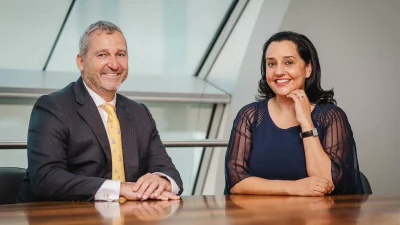Australia named APAC hotspot for alternatives



The land down under has been recognised as an APAC hub for alternatives investment, Preqin finds, amid ASIC’s planned crackdown on private markets.
A new report from Preqin has highlighted the growing appetite for alternatives across the globe from private wealth investors, including wealth managers of ultra-high-net-worth individuals and family offices.
Wealth managers and family offices currently allocate 22.6 per cent of assets under management to alternatives globally. Equities remain the top asset class for allocation at 43.4 per cent, followed by fixed income at 30.8 per cent.
The report also conducted a regional analysis of investment into alternatives by private wealth investors. Of the total 12,000 private wealth investors tracked by Preqin, 12 per cent are located in APAC.
Within the region, the greatest number of investors fall within Australia at 23 per cent – making it a key hotspot for alternative fundraising. This is followed by Singapore at 20 per cent, Hong Kong at 18 per cent, India at 16 per cent, and China at 14 per cent.
Wealth managers in the Asia-Pacific region lean heavily towards private equity and venture capital funds, the research discovered.
“Australian private wealth investors are looking toward alternatives, which has led to some preliminary regulations within private markets. As in the US and Europe, the ASX has seen a decline in IPOs and shallowing of public markets, creating a greater interest among private wealth investors for alternatives,” Preqin stated.
“As a result, managers should be aware that Australia’s corporate regulator is planning to set up a division to evaluate private markets in the coming 12 months, particularly relating to concerns over valuations.”
ASIC recently announced its 2024–25 corporate plan, including a strategic priority to drive consistency and transparency across markets and products. This includes outcomes in public and private markets and the existing and emerging financial products, including new market participants.
It referenced the “significant growth” of private markets and its implications for public markets.
ASIC chair Joe Longo said: “While Australia’s private markets are dwarfed in size by our listed equity markets, their opacity presents an outsized risk to market integrity, particularly as more investors become exposed.”
Commenting on the report’s findings, Rachel Dabora, research insights analyst at Preqin, said private wealth investors act as a potential new fundraising frontier for alternative fund managers.
“Understanding how, who and where to engage with this capital pool, that’s estimated to be worth around $100 trillion, is still being explored,” she described.
“This is a phenomenon that has begun with European wealth managers and family offices, APAC’s burgeoning populace of high-net-worth individuals, and through established adviser networks across North America. Now is the time for managers to build these relationships in the anticipation of the imminent intergenerational wealth transfer, new technologies that will reduce transaction costs, and a growing interest in alternatives.”
In August, BT and Preqin announced a strategic education partnership to provide financial advisers with greater education and transparency on private markets. In response to rising demand for the asset class, it will offer comprehensive resources and up-to-date research on private markets to enhance advisers’ understanding of the sector.
Recommended for you
US alternative credit manager Apollo Global Management is viewing Australia as a “priority market”, as it launches a fund for Australian wholesale investors with Channel Capital.
The investment manager has launched a new scholarship and career development program to promote women entering the asset management industry.
Magellan Financial Group experienced $1 billion in net outflows during April but managed to offset this and report a rise in FUM, having also announced its fourth fund from its partnership with Vinva.
Having officially opened its doors, ETF Shares – led by three former Global X employees – has now launched its first three ETF vehicles on Cboe Australia for financial advisers.















